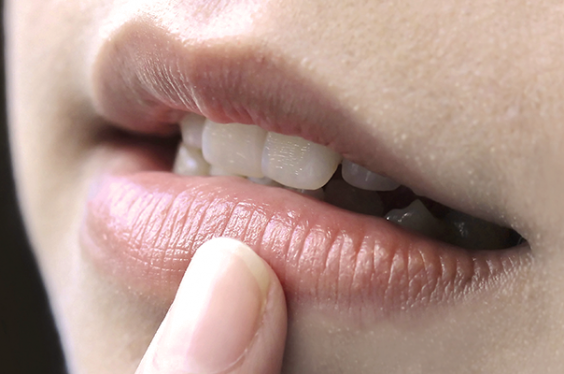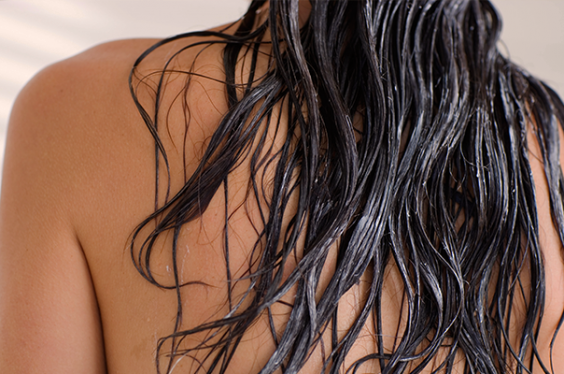It’s wintertime and “Baby, it’s cold outside!” Whipping winds, dry air, and chilly temperatures can really do a number on soft skin and hair. Cold air outside and central heat indoors can strip moisture from strands and pores, making hair rough and skin itchy and dry. But endure cracked hands no more: items hiding in the back of your kitchen cupboard could just be the answer.
Here are seven specific cures and preventative measures to combat winter woes from itchy scalp to frozen fingers and more.
Smooth Sailing: Your Action Plan
1. Dry Skin
To cure dry skin all over the body, mix a few drops of olive or grape seed oil in bathwater and hop in, or apply a thin layer of oil to the body after showering (and maybe wear some old PJs to bed). And, an oatmeal bath can make red, irritated skin feel better. Immediately after an oil/oatmeal bath, apply plenty of thick cream (shea butter works great for damaged skin) and crank up the humidifier before hitting the hay. Slathering on lotion within three minutes of stepping out of the bath or shower is most effective for trapping in moisture.
2. Rough and Cracked Feet
Nothing screams “dead of winter” like gnarly, callused feet with cracked heels. Save some cash and skip the pedicure by exfoliating and moisturizing at home. Scrub calluses with a pumice stone in the shower once per week to slough off rough, dead skin. Moisturize feet, especially the heels, every day with thick cream — lotions containing lactic acid are especially effective (I use shea butter on my heels, in the winter) — and wear cotton socks to bed. It may look nerdy, but sporting socks while snoozing can help creams absorb.
3. Itchy Dry Scalp
A dry, flaky scalp is uncomfortable and just a wee bit embarrassing, too. Step one in preventing dandruff is to take cooler, quicker showers to reduce the scalp’s exposure to drying hot water. Think about switching to a dandruff or dry scalp specific shampoo. Before hopping in the shower, massage the scalp with Vitamin E, olive, or coconut oil. These oils replenish natural scalp oils and can moisturize dry hair, too. Tea tree oil is also a popular treatment for fungal and bacterial infections like dandruff or athlete’s foot. Wash the hair and scalp with tea tree oil daily to cure a dry, itchy head naturally. Sometimes, the issue can be caused by product build-up — not winter weather. If you think this may be the case, rinse the hair with apple cider vinegar to clear out the gunk and then wash normally with shampoo.

4. Chapped Lips
Keeping a tube of lip balm in an easily accessible pocket is a good first step, but winter winds can take chapped lips to a whole new level. If lips are flaky, take a clean toothbrush and very gently exfoliate the skin to remove excess skin. Slather on beeswax or a lip balm with lanolin (a natural oily wax extracted from sheep’s wool!) and keep reapplying throughout the day. Lanolin is a natural moisturizer that softens skin and reduces evaporation, keeping the skin hydrated. For seriously dry lips, apply honey to the lips for 15 minutes and then remove with a cotton swab dipped in hot water.

5. Rough Hair
Hair needs a little extra TLC during wintertime. Shampooing strips moisture from the scalp and hair, so wash strands every other day. Everyone’s hair is different — if washing once or twice a week is normal for you, consider adding some time between shampoos to take dry winter conditions into account. And don’t skip the conditioner — skipping the ‘poo and opting for a quick rinse and conditioning treatment works just fine to keep hair clean and moisturized. To prevent breakage or other damage, avoid blow-drying and brushing hair when wet because those locks are most delicate when waterlogged. If strands are really parched, comb hair with a few drops of olive oil and a wide-tooth comb after showering.
6. Dry hands
It’s bad enough to have freezing digits, but cracked and painful skin on the hands is the icing on the cake. To prevent hands from drying out, apply moisturizer after handwashing and at least several times throughout the day. Keep a bottle of lotion by each sink in your home and in your desk at work. If hands are very dry, use cream instead of lotion because the former has a higher oil-to-water ratio. Wearing rubber gloves while washing dishes can prevent hands from getting dried out due to excess contact with hot water, too. To really rehab the skin on hands, use very thick hand cream right before bed and then slip on white cotton gloves — the enclosed space will help the moisturizer absorb into the skin.
7. Dry Face
It’s unfortunate (but unavoidable) that the body’s most sensitive skin is always exposed to the elements. Definitely take some time this winter to give your mug a little extra lovin’. First thing’s first: During winter, avoid any face products with alcohol, and switch to a milder face wash and a thicker moisturizer. Need to mix up the routine a bit? Wash your face once a week with Greek yogurt. It sounds weird, but the lactic acid works as a gentle, non-abrasive exfoliator. For a moisturizing face mask, take a look in the kitchen before heading down the beauty aisle: Bananas, avocado, egg yolk, and milk can all make great moisturizing face treatments. Another good option? Whole grains and aromatic veggies contain selenium, a compound that gives skin the elasticity to make silly faces.
What’s your go-to solution for treating winter skin and hair woes? Tell us in the comments below.
